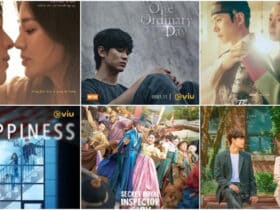Contents
The Early Theatrical Roots
The origins of drama films can be found in the age-old art of theatrical performances. From ancient Greek tragedies to Shakespearean plays, these live performances were the initial platforms for dramatic storytelling. The actors’ emotive prowess and compelling narratives laid the foundation for the future of dramatic expression.The Birth of Cinematic Drama
The late 19th century witnessed the birth of motion pictures, opening new avenues for storytelling. Early filmmakers recognized the potential to capture dramatic narratives on film. Short silent films, often adaptations of plays, marked the initial steps toward marrying drama with the visual medium.Transitioning from Silent to Sound
The introduction of synchronized sound in the 1920s revolutionized cinema. This pivotal moment allowed actors to speak, adding a new layer of authenticity to their performances. Drama films could now capture not only facial expressions and gestures but also the nuances of speech.Golden Age of Hollywood Dramas
The 1930s to 1950s is often referred to as the Golden Age of Hollywood. This era saw the emergence of iconic drama films that remain timeless classics. Studios invested in grand productions, bringing gripping narratives to life with the help of legendary actors and visionary directors.Exploration of Realism
The mid-20th century brought a shift towards realism in drama films. Method acting gained prominence, with actors immersing themselves deeply in their roles. This approach added a new layer of authenticity, making performances more relatable and emotionally charged.Impact of Technological Advancements
Technological progress in the latter half of the 20th century transformed the visual aspects of drama films. From elaborate sets and costumes to advanced camera techniques, filmmakers could create visually stunning worlds that enhanced the narrative’s impact.Rise of Method Acting
Method acting continued to influence the craft of acting well into the 20th century. Performers like Marlon Brando and Meryl Streep showcased the power of method acting, bringing intense emotions and raw vulnerability to the screen.Diversity and Inclusion in Drama
The evolving social landscape prompted a demand for diverse and inclusive storytelling. Drama films began to explore a range of cultures, identities, and experiences, contributing to a richer tapestry of human narratives on screen.International Influences
Drama is a universal language, and filmmakers from around the world infused their unique cultural perspectives into the genre. International cinema brought fresh storytelling techniques, thematic depth, and a global exchange of ideas.Drama in the Digital Age
The digital age introduced new possibilities for filmmaking. Advancements in CGI and digital effects opened doors to fantastical storytelling, while also posing the challenge of maintaining emotional resonance in an increasingly visual world.The Power of Emotion: Understanding Drama Films
Streaming Platforms and New Audiences
The rise of streaming platforms democratized access to drama films. Audiences could now enjoy a diverse range of stories from the comfort of their homes. This shift also led to the creation of binge-worthy narratives that kept viewers engaged across multiple episodes.Evolution of Storytelling Techniques
Modern drama films experiment with nonlinear narratives, unreliable narrators, and intricate plot structures. Filmmakers push the boundaries of storytelling, inviting audiences to engage more actively and interpret narratives in innovative ways.Challenges and Controversies
As drama films continue to evolve, they tackle complex societal issues that can spark controversies. Balancing artistic expression with responsible portrayal remains a challenge, as filmmakers strive to provoke thought while respecting sensitivities.Future Trends in Drama Films
The future of drama films holds exciting prospects. Virtual reality, interactive narratives, and AI-generated stories could redefine the way we experience drama. However, the essence of compelling storytelling and genuine emotional connection will always remain at the heart of this genre.How Have Korean Dramas Evolved from Stage Plays to Television?
Korean dramas have come a long way, exploring viu korean dramas has witnessed this evolution first-hand. Originally derived from stage plays, they have now found a new platform on television. With captivating storytelling, relatable characters, and gripping plots, Korean dramas have earned a global following, making them a significant part of modern entertainment.
Conclusion
The evolution of drama films from their theatrical origins to the digital age is a testament to the enduring power of storytelling. As technology and society change, drama films continue to adapt, offering us windows into the human experience that are as diverse and profound as ever.The Rise of Margot Robbie: From Unknown to Stardom











